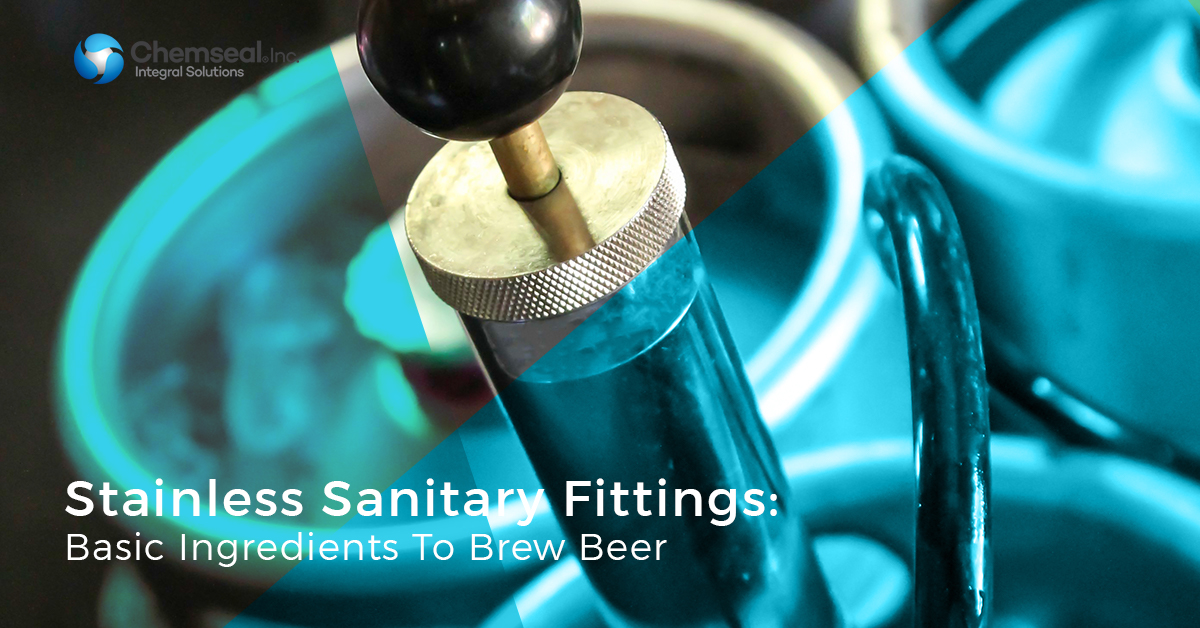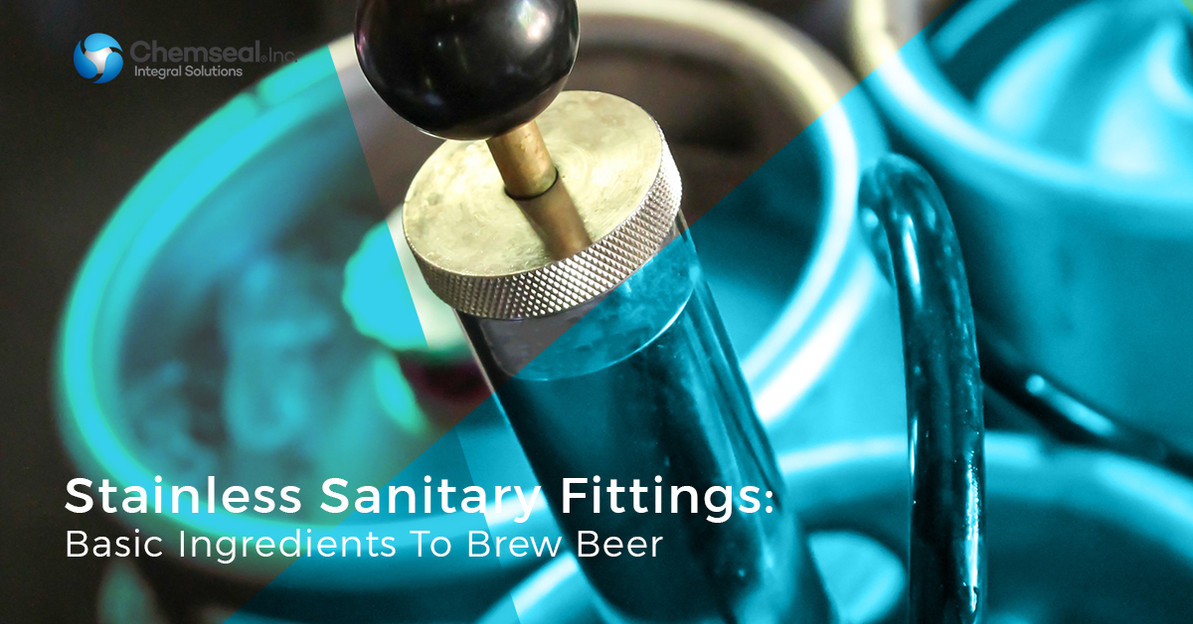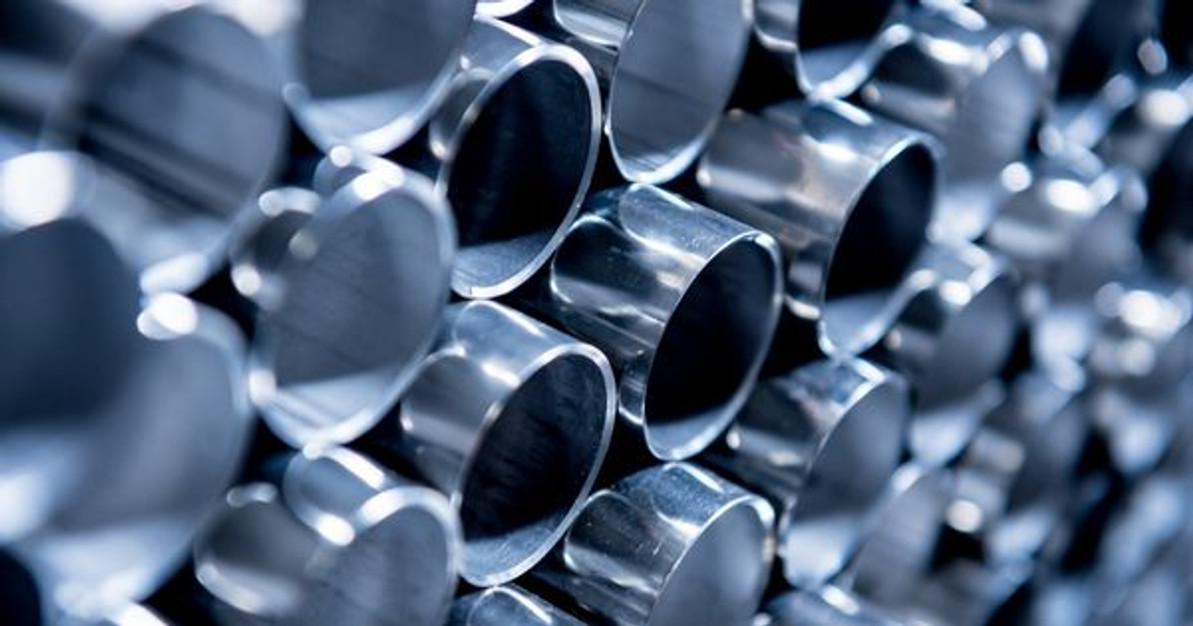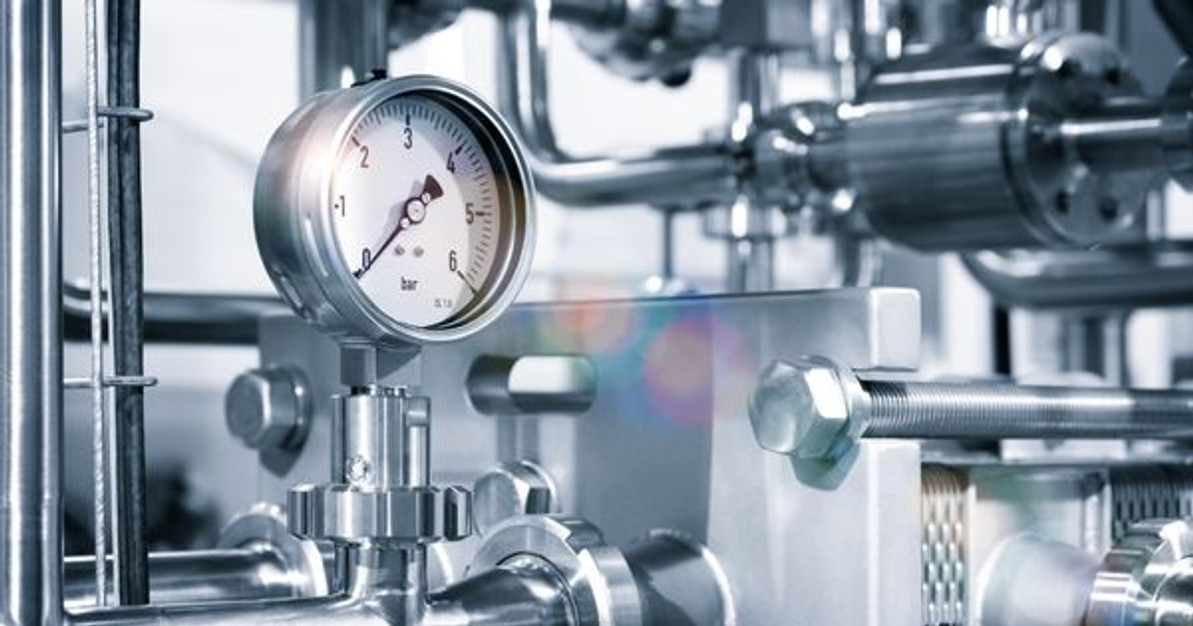 Jan 7th 2018
Jan 7th 2018 Stainless Sanitary Fittings: Basic Ingredients To Brew Beer

If you’ve kept up with any of our blog posts in the past, you’ll know that we enjoy writing about beer and brewing beer here at Chemseal. Why is that, exactly? Well, for one, beer is delicious and people enjoy reading about it almost as much as they enjoy drinking it...so there’s that. Additionally - and more relevant to our business as a sanitary stainless steel tubing and supplies carrier - Chemseal works with Trynox to provide essential stainless steel sanitary valves, tubing and other sanitary fittings. From the gallon of milk you’re picking up at the grocery store to various life-saving medications, Chemseal is responsible for making sure that products are manufactured safely and hygienically.
Your Trusted Supplier of Stainless Sanitary Fittings
Whether you’re a brewmaster at a local brewery or you work in another manufacturing operation that involves hygienic fluid processes, rest assured that Chemseal carries the right Trynox sanitary stainless steel fittings, valves, tubing and more. Why risk any contaminants in your production? It’s simply not fair to the consumer or your business. Learn more about Chemseal or feel free to shop our collection of sanitary fittings today!
And now, here are the basic ingredients to happiness in life...er, we mean beer.
Malt or Malt Extract
In most typical beer recipe kits, malt extract is included, usually in the form of a dry or syrupy liquid malt extract, serving as the base for the beer instead of traditional grain. To no surprise, both dry and liquid malt extracts are made from a process calling “malting.” The main difference between liquid and dry malt extracts is in the amount of water left in the end product - due to this difference in water content, dry and liquid malt extracts cannot be interchanged.
Hops
Surely you’re familiar with the hop craze over the last ten years or so. From IPAs to Double IPAs to, dare we say it, Triple IPAs, hops are an essential ingredient in beer regardless of the concentration. As many people know, hops contribute to the bitterness of beer, and also help balance the sweetness. In the beginning of the boil process, bittering hops are added, and flavoring hops are also included and added in the early stages of the boil. Depending on the style of beer that you’re going for, aroma hops may also be included. Aroma hops are usually added in later on in the boil process and contribute an extra layer of aromas to the beer. There’s just nothing quite like pouring out a fresh IPA into a proper tulip glass and taking that first whiff.
Yeast
You can’t make beer without yeast - you could try, but it wouldn’t be easy. Crucial to the brewing process, yeast converts the sugars into alcohol, a fact that you’ll appreciate after a long week of work. Yeast comes in both liquid and dry form, and since yeast is a living organism, it is arguably the most important ingredient in terms of care and attention. When you’re tackling your homebrew, be sure to not allow the yeast to get too warm or too cold - a stable room temperature is best.
And Of Course, Water
Now, this is the most obvious ingredient of beer, and the most obvious ingredient of just about any drink on the planet. However, water is also the most important ingredient in beer! To get the best, crisp flavors out of your unique brew, it is recommended to use filtered water as opposed to regular tap water. After all, there’s a reason that beer giant Coors boasts about using pure “Rocky Mountain” water in their beer...you know, because the water they use and the beer they make contain about the same amount of flavor.
Specialty Grains and Powders
These might not be basic or essential ingredients to brew beer, but in addition to the malt extract used in the brewing process, actual crushed grains or milled grains can be used. This allows you to add depth and complexity to the color and flavor of the beer that you won’t get from an extract alone. Think about fancier beers - you’ll likely find actual grains used with varieties like chocolate malt, biscuit malt, malted rye, and so forth. Some kits even go as far as including other special ingredients like oak chips or oak powder, adding even more depth to your beer’s flavor profile. So, in other words, it only gets better when it comes to brewing beer, and brewing your own beer, nonetheless!
Brew Beer Safely With Our Sanitary Stainless Steel Fittings
The last thing you want is to have your carefully-constructed concoction compromised by bacteria or inferior stainless steel supplies. With our sanitary stainless steel tubing and other stainless sanitary fittings here at Chemseal, we’ll take care of keeping thing hygienic while you enjoy the hard work you’ve put into brewing the perfect batch of beer. Shop our sanitary fittings today!
 Jan 7th 2018
Jan 7th 2018 Recent Posts
-
Nov 7th 2022
What Is Food-Grade Stainless Steel Tubing?
Businesses that produce food and beverage products must operate hygienically. Sterile environments a …Nov 7th 2022
-
Oct 11th 2022
Why Sanitary Fittings Are Important for the Medical Industry
Sanitary fittings are useful for many industries. Food and beverage manufacturers have used these to …Oct 11th 2022
-
Sep 23rd 2022
What Is the Max Operating Temperature for Stainless Steel?
Stainless steel is valued in many industrial applications because it’s capable of withstanding high …Sep 23rd 2022





